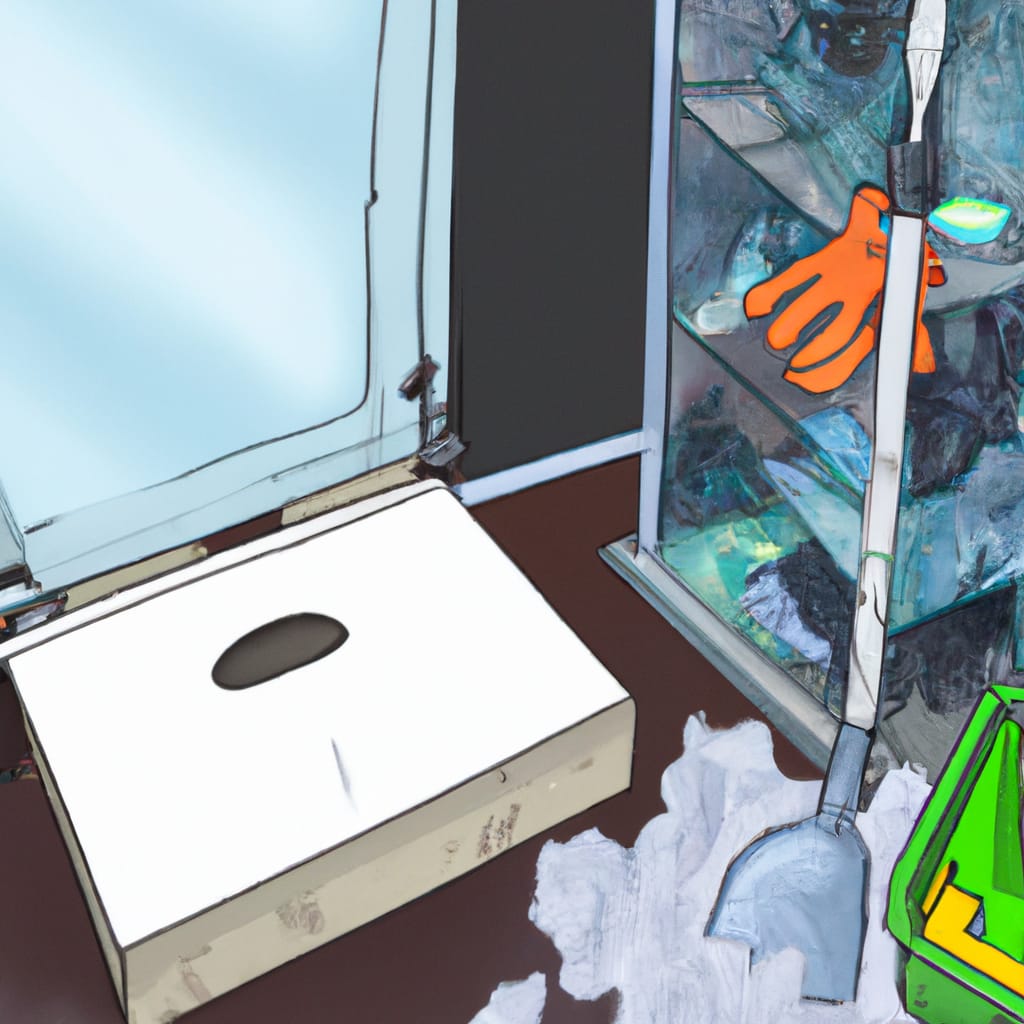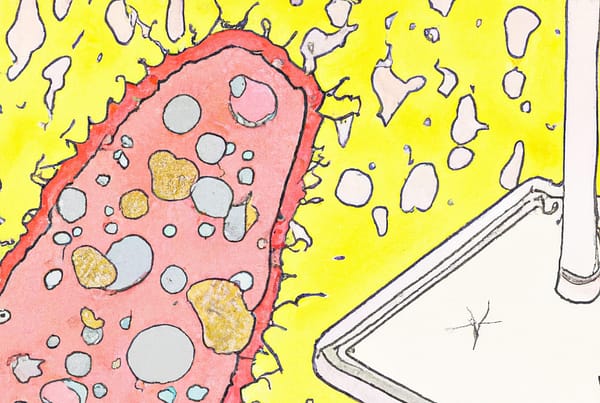Are you overwhelmed by the task of cleaning mold out of your closet? Don’t worry, you are not alone. Mold is a common issue in many closets, but it doesn’t have to be a daunting problem. With the right knowledge and tools, you can easily clean mold out of your closet and keep it from coming back. In this article, you’ll learn how to identify mold, the right cleaning techniques to use, and how to prevent mold from returning. With these tips, you’ll be able to keep your closet clean and safe from mold.

What kind of cleaning products are best for getting rid of mold in a closet?
Mold can be difficult to remove from a closet, but with the right products and a bit of effort, you can tackle it. Here’s how to clean mold out of a closet:
1. Start by ventilating the closet. Open the door and windows if possible to let in fresh air and reduce dampness.
2. Vacuum the closet to remove any loose particles of mold. Be sure to use a vacuum with a HEPA filter to prevent the mold from spreading.
3. Use a bleach solution to kill the mold. Mix one cup of bleach with one gallon of water, and use a sponge or cloth to scrub the affected areas.
4. After scrubbing, rinse the area with clean water.
5. Allow the closet to dry completely before putting items back in.
6. Use natural mold-fighting products, such as tea tree oil, vinegar, or baking soda, to prevent future growth.
7. If the mold persists, contact a professional to identify the cause and provide a more thorough solution.
How should I prepare the closet before cleaning?
Before cleaning a moldy closet, it is important to prepare for the task. Here is what you should do:
- Wear protective clothing such as a face mask, gloves, and long-sleeved shirt.
- Open windows to increase air circulation in the closet and to help prevent the mold spores from spreading to other areas in the house.
- Remove any items that may be affected by the mold, such as clothing, books, or other items.
- Vacuum the closet to remove any loose dust and debris. Make sure to use a vacuum with a HEPA filter to avoid spreading the mold spores.
- Clean the closet with a solution of warm water and mild soap. Pay special attention to any areas that are visibly affected by the mold.
- Dry the closet thoroughly with a fan or dehumidifier to prevent the mold from returning.
- Finally, replace any items that were removed from the closet.
These steps will help ensure that the mold is removed from the closet and that it does not return.
What are the safety precautions for cleaning mold in a closet?
Mold in a closet can be a serious health hazard, so it is important to take the proper safety precautions when cleaning it out. Here are some tips on how to safely clean mold out of a closet:
- Put on protective gear, including a face mask, eye protection, and gloves, before entering the closet.
- Make sure the area is well-ventilated and open all windows and doors to the closet.
- Mix 1 part bleach with 10 parts water in a spray bottle and spray the moldy surfaces thoroughly.
- Let the bleach solution sit for 15 minutes and then scrub the surfaces with a sponge or brush.
- Rinse the surfaces with water and use a dehumidifier to remove any remaining moisture.
- Discard any porous materials, such as carpeting, that may be affected by the mold.
When finished cleaning the closet, make sure to thoroughly wash your hands and discard any protective gear you may have used. It is also a good idea to have the area checked by a professional to ensure that all of the mold has been removed and the air quality is safe.
How do I identify and remove mold from the walls, floor, and shelves of a closet?
Cleaning mold out of a closet can be a difficult task. To ensure that all of the mold is removed, follow these steps:
- Ventilate the closet: Open the door and windows to let fresh air in, and use a fan to increase air circulation.
- Remove the items stored in the closet: Take all of the items out of the closet and place them outside.
- Clean the walls and shelves: Use a mixture of water and dish soap, and scrub the walls and shelves with a sponge or brush. Rinse off the walls and shelves with a damp cloth.
- Clean the floor: Vacuum the floor to remove any dust or debris. Use a mop and a cleaner specifically designed for mold removal.
- Dry the closet: Open the windows and door to let the closet dry completely.
- Inspect the closet: Make sure all of the mold has been removed.
Once all of the mold has been removed, keep the closet clean and dry to prevent future mold growth.
How do I dehumidify the closet and keep it dry?
If you want to dehumidify a closet and keep it dry, here are some steps that you can take:
- Keep the closet door open when possible to allow for air circulation.
- Use a dehumidifier to reduce the humidity level in the closet.
- If you have air conditioning in the house, keep it running when the closet door is open to help reduce the humidity level.
- Place a fan inside the closet to help circulate the air.
- Clean out the closet periodically to remove any moisture build-up.
- Use a moisture absorber such as silica gel or activated charcoal to help keep the humidity level down.
- Place a hygrometer inside the closet to monitor the humidity level and ensure it stays below 80%.
By following these steps, you can help keep the humidity level in your closet low and reduce the risk of mold growth.
How do I prevent mold from growing back in the closet?
Mold can be a problem in closets, but there are steps you can take to prevent it from coming back. Here are some tips to help keep mold out of your closet:
- Keep your closet dry. Use a dehumidifier to reduce humidity levels in the room and leave closet doors open when possible to increase air circulation.
- Clean the closet regularly. Wipe down the walls and floors with a mild detergent and water solution to remove any dirt or dust.
- Check for water leaks. If you find any, fix them immediately to prevent mold from growing.
- Use mold-resistant products. When painting or installing shelving, use mold-resistant paint and materials.
- Store items off the floor. Storing items on shelves or in bins can help keep them dry and prevent moisture from accumulating.
By following these steps, you can help keep mold out of your closet and ensure the air stays fresh and healthy.
How can I check to make sure the mold is completely gone?
If you have a mold problem in your closet, it is important to ensure that it is completely gone before you close up the closet again. Here are some steps you can take to make sure that the mold is gone:
- Check the walls of the closet for any visible signs of mold. Look for any discoloration, spots, or stains that may indicate the presence of mold. If any of these are present, you will need to clean them off.
- Use a damp cloth to remove any remaining mold. Make sure to thoroughly clean the affected areas and pay special attention to any crevices.
- Allow the walls to dry completely before closing up the closet again. This may take up to a few days depending on the size of the closet.
- Test the air quality in the closet with a mold test kit. This will give you an indication of the levels of mold spores in the air.
- If the test results show that the levels of mold are higher than 80, you will need to repeat the cleaning process.
By following these steps, you can make sure that the mold is gone and your closet is safe to use again.
What should I do if I find mold in other parts of the house?
If you find mold in other parts of the house, it is important to take action quickly to prevent it from spreading. Here are some steps you can take to clean mold out of a closet:
- Ventilate the area by opening windows or using fans to circulate air.
- Wear protective gear such as gloves, a dust mask, and goggles.
- Remove any items from the closet that are affected by the mold. Place them in plastic bags and discard them.
- Clean the surfaces with a mixture of one part bleach and four parts water.
- Scrub the area with a brush to remove any visible mold.
- Allow the area to dry completely before replacing any items.
If the mold is extensive, it may be best to consult a professional to ensure the problem is properly addressed. Taking these steps can help to ensure that mold does not become a significant issue in your home.
Is it safe to store items in the closet after I have cleaned out the mold?
It is possible to store items in the closet after cleaning out the mold. To do this safely, you should take the following steps:
- Identify the source of the mold and take steps to ensure it does not return.
- Ventilate the closet by opening the windows and/or running a fan.
- Clean and dry the closet thoroughly. Use a vacuum cleaner or a damp cloth to remove any visible mold, then dry the area with a dry cloth.
- Remove any items that have been damaged by the mold.
- Discard any items that can’t be salvaged.
- Wash any items that can be washed in a washing machine.
- Use a dehumidifier to remove any remaining moisture from the air.
- Disinfect the closet with an appropriate mold-killing product.
- Store items in plastic bins or boxes to prevent mold from growing again.
By following these steps, you can safely store items in the closet after cleaning out the mold.
Are there any special tips for removing mold from fabrics and other materials in the closet?
To clean mold out of a closet, the following steps should be taken:
- Vacuum the closet and any items inside to remove any loose mold.
- Clean the walls, shelves, and other surfaces with a mixture of water and detergent.
- Allow the surfaces to dry completely before replacing the items.
When it comes to fabrics and other materials in the closet, take the following steps:
- Remove all items from the closet and take them outside for cleaning.
- Wash any fabrics in a washing machine using hot water and detergent.
- Dry the fabrics in the sun for at least an hour.
- Spray any hard surfaces with a mold-killing solution.
- Allow the items to air dry completely before returning them to the closet.
It is important to take the extra time to ensure the closet is completely dry and free of mold before replacing the items. Regularly checking and cleaning the closet can help prevent the growth of mold in the future.
How do I clean the closet thoroughly after removing the mold?
Getting rid of mold from your closet can be a difficult and time consuming task, but it’s important to do it right. Here are a few steps you should take to ensure a thorough job:
- Put on protective gear, such as a face mask, rubber gloves, and goggles.
- Vacuum up any loose mold spores and debris.
- Wipe down the walls and surfaces with a damp cloth and a solution of 1 part bleach to 10 parts water.
- Allow the bleach solution to sit for 10 minutes before wiping it away.
- Dispose of the vacuum bag or filter in a sealed plastic bag.
- Remove any moldy clothing and other items from the closet.
- Wash and dry all the items on the hottest cycle possible.
- Clean the closet with a damp cloth and a solution of 1 part vinegar to 10 parts water.
- Allow the vinegar solution to sit for 10 minutes before wiping it away.
- Let the closet air out for a few hours to ensure it’s completely dry.
- Spray the closet with an anti-fungal spray.
- Wipe the walls down with a dry cloth and replace any shelves or items that were removed.
Taking these steps will help ensure that the mold is gone and that your closet is clean and safe.
How do I keep myself safe when cleaning mold out of a closet?
When cleaning mold out of a closet, it is important to take safety precautions to protect yourself. Here are some tips to follow:
- Wear a face mask, gloves, and eye protection.
- Open windows and use fans to help circulate the air.
- Avoid mixing cleaning solutions as they can produce dangerous fumes.
- Use natural cleaning solutions such as vinegar, baking soda, and hydrogen peroxide.
- Keep children and pets away from the area.
- Avoid using harsh chemicals as they can irritate the skin and eyes.
If the mold is extensive, it may be best to call in a professional to handle the job. If you do decide to tackle it yourself, remember to take the appropriate safety measures to protect yourself.




